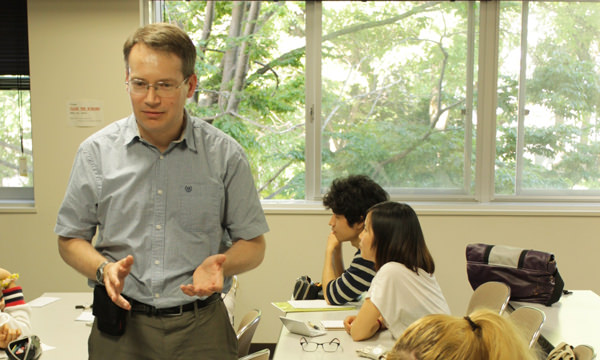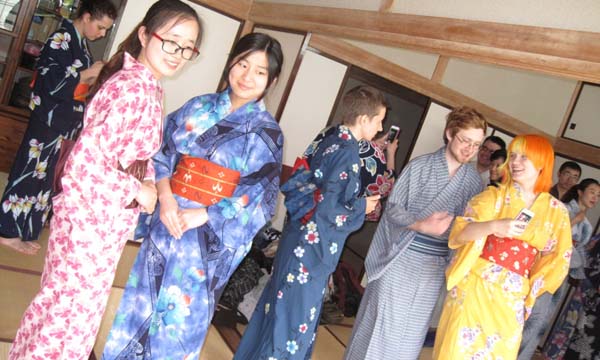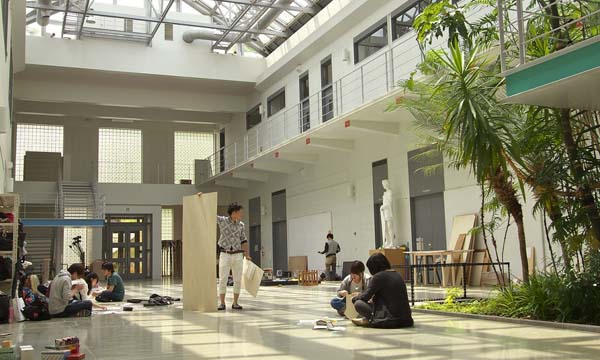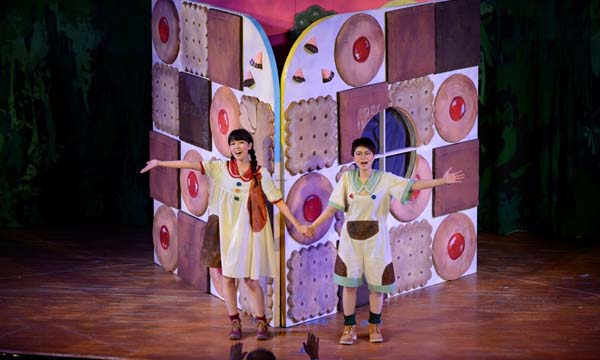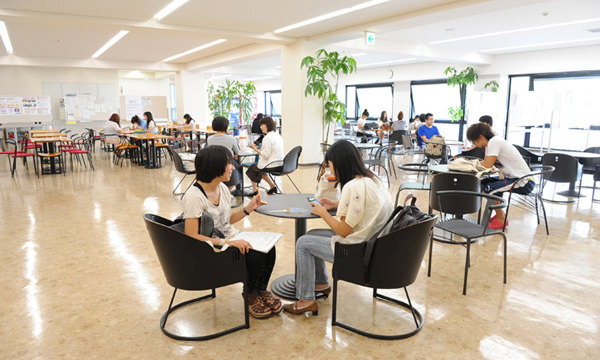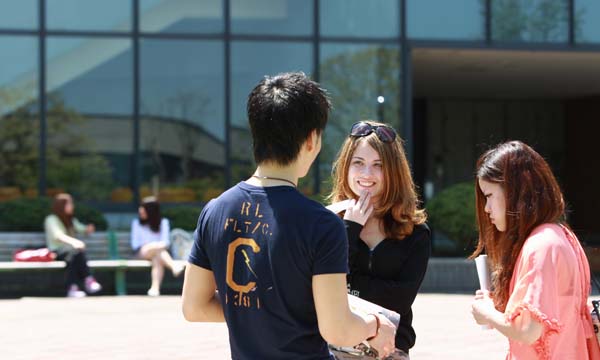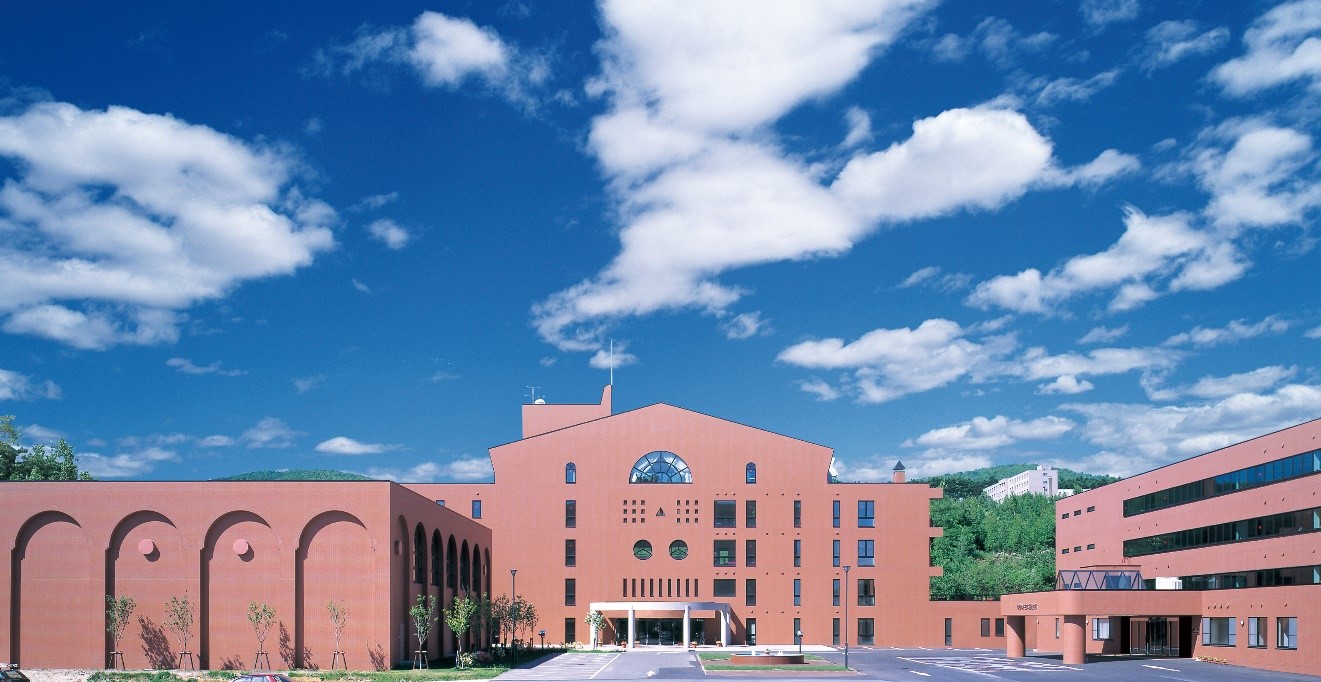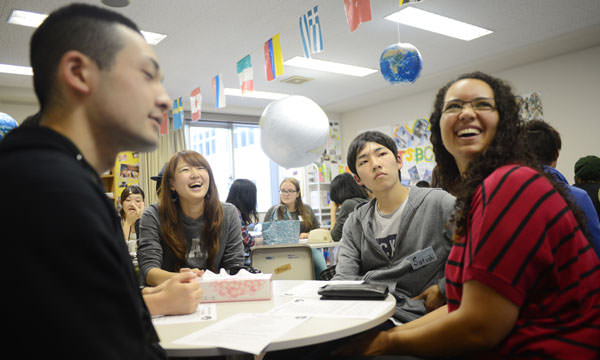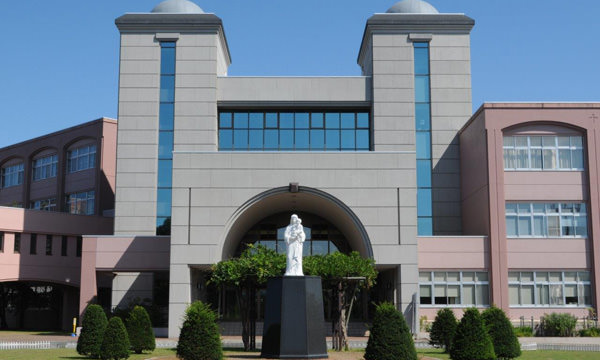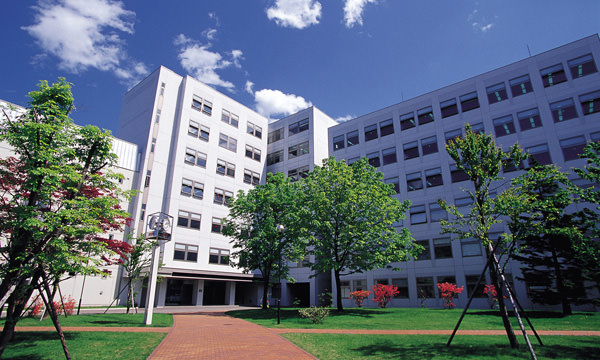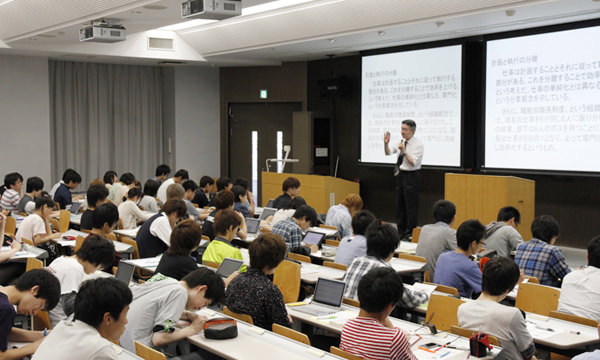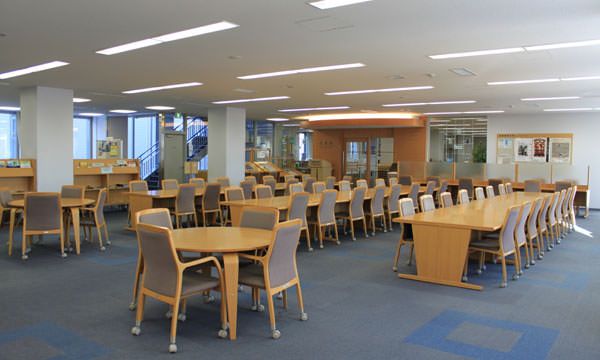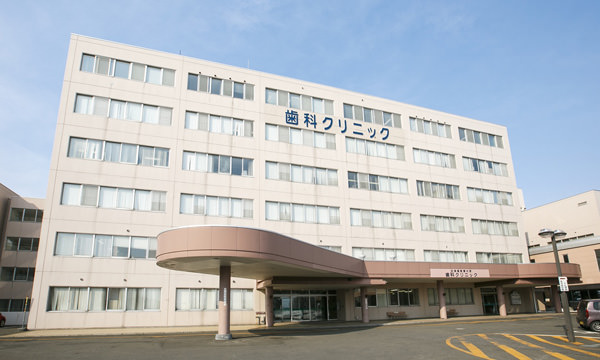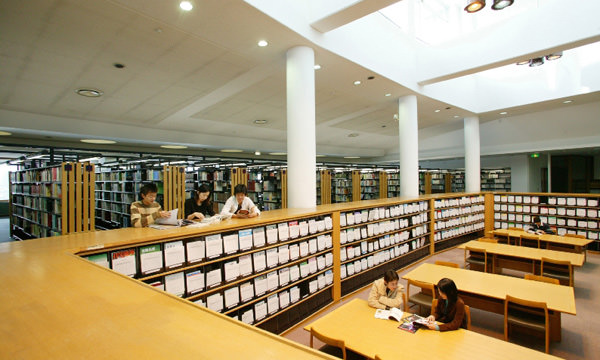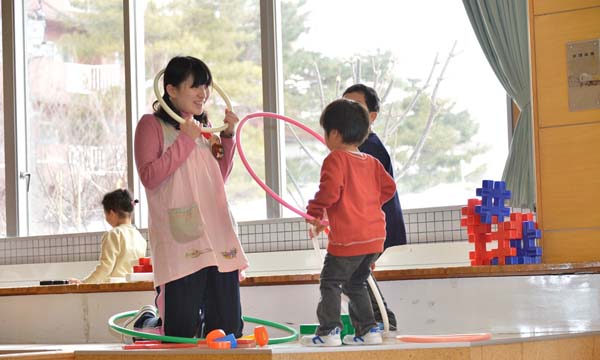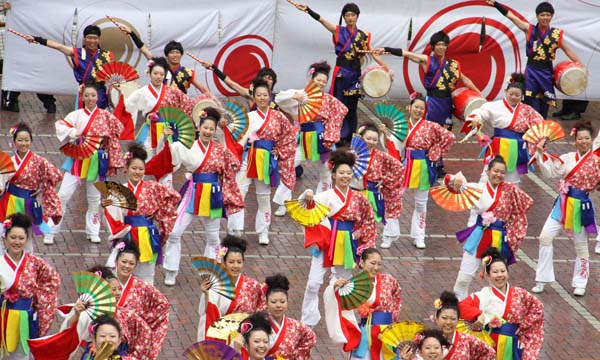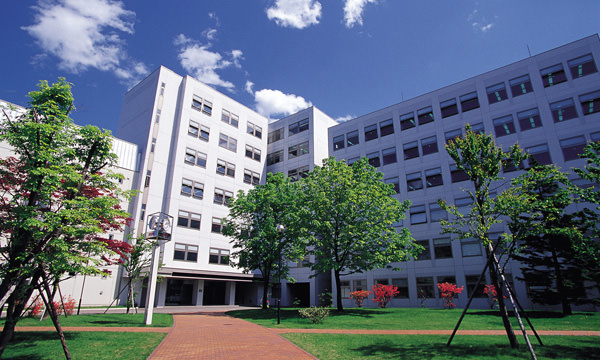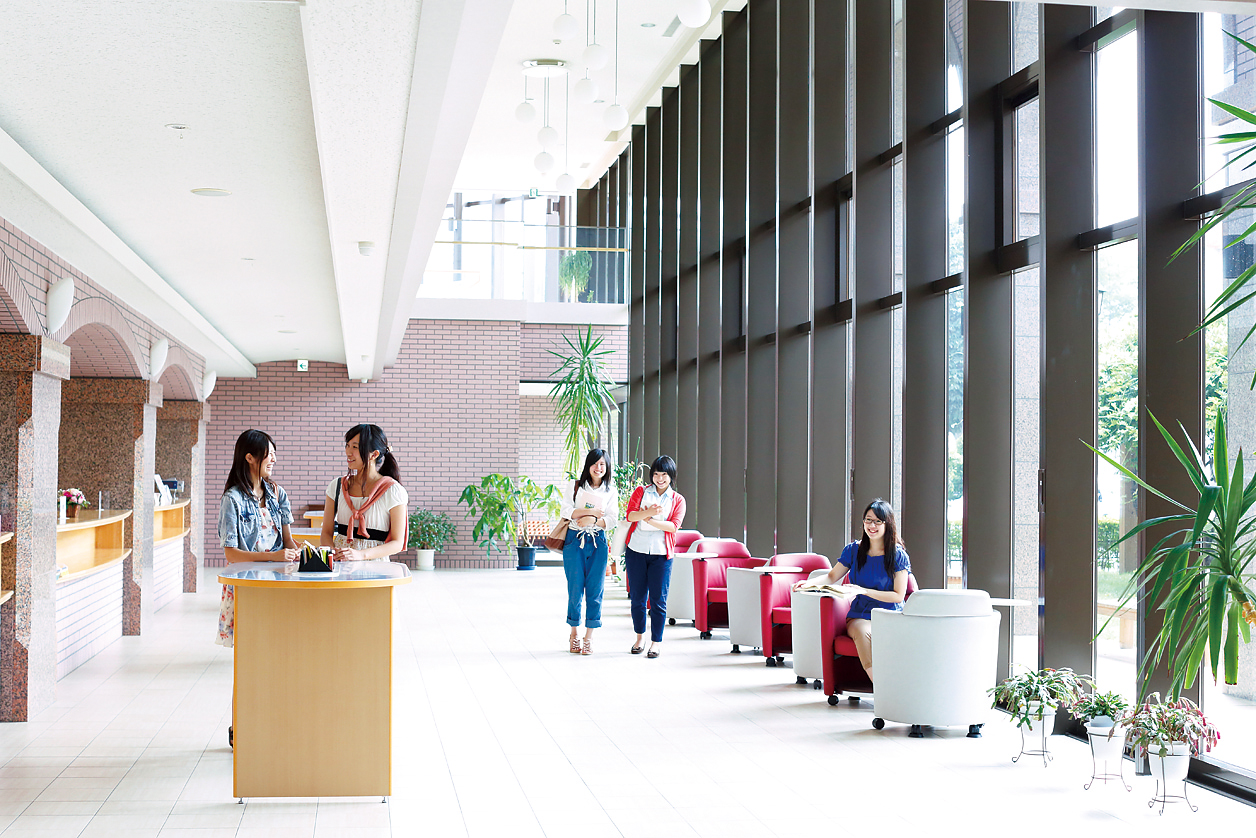
Studying in Sapporo

Universities in Sapporo
There’s a wide variety of universities in Sapporo. You’re sure to find one that’s just right for you.
-
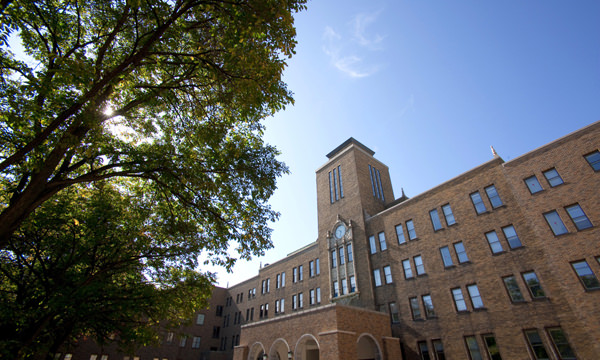
Hokkaido University
-
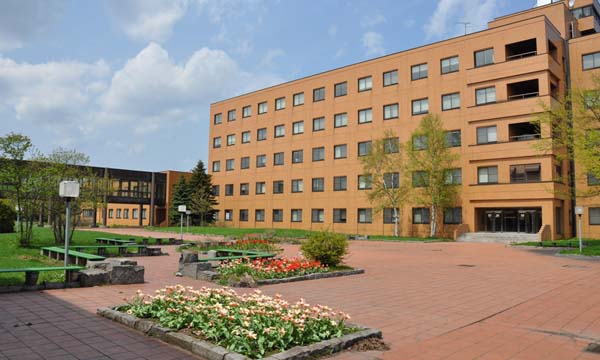
Hokkaido University of Education
-
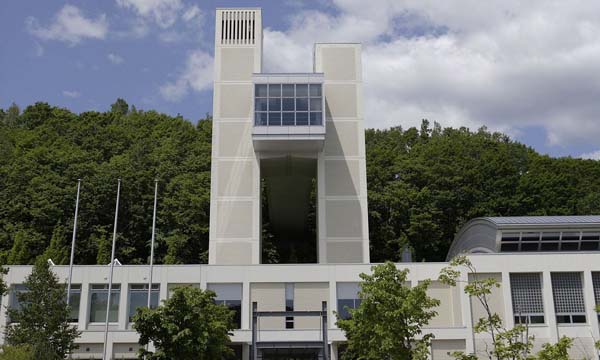
Sapporo City University
-

Hokkaido University
Hokkaido University’s origins date back to 1876, when Sapporo Agricultural College was established as Japan’s first modern university. It later became Hokkaido Imperial University and a national university under the reformed school education laws, before attaining its current status as a leading comprehensive research university, the National University Corporation Hokkaido University. Throughout its long history, the university has adopted the four basic philosophies of “frontier spirit”, “global perspective”, “all-round education” and “practical learning”. In 2026, the university will reach an important milestone – it’s 150th anniversary – as it continues its reforms towards becoming “Hokkaido University that contributes to resolving global issues”, while acknowledging the importance of the university’s role in society.
- Number of students / Number of international students
- 18,094 (as of May 1, 2022) / 2,024 (as of May 1, 2022)
- Faculties, schools and graduate schools that accept international students
-
School of Humanities and Human Sciences, School of Education, School of Law, School of Economics and Business, School of Science, School of Medicine, School of Dental Medicine, School of Pharmaceutical Sciences and Pharmacy, School of Engineering, School of Agriculture, School of Veterinary Medicine, School of Fisheries Sciences, Modern Japanese Studies Program Courses, Integrated Science Program
Graduate School of Humanities and Human Sciences, Graduate School of Law, Graduate School of Information Science and Technology, Graduate School of Fisheries Sciences, Graduate School of Environmental Science, Graduate School of Science, Graduate School of Agriculture, Graduate School of Life Science, Graduate School of Education, Graduate School of International Media, Communication and Tourism Studies, Graduate School of Health Sciences, Graduate School of Engineering, Graduate School of Chemical Science and Engineering, Graduate School of Economics and Business, Graduate School of Medicine, Graduate School of Dental Medicine, Graduate School of Veterinary Medicine, Graduate School of Biomedical Science and Engineering, Graduate School of Infectious Diseases, Graduate School of Global Food Resources, Graduate School of Public Policy
- Support systems aimed at international students
- Scholarships, reduction of/exemption from tuition fees, student dormitories, supporters when arriving in Sapporo, support desk, counselors
- University website URL
- https://www.global.hokudai.ac.jp/
- Inquiries
-
Department: Student Exchange Division, Academic Affairs Department
Tel. No.: +81-11-706-8056
E-mail: rkouryu@oia.hokudai.ac.jp
Languages available: Japanese, English
-

Hokkaido University of Education
Hokkaido University of Education has campuses in five major cities in Hokkaido (Sapporo, Asahikawa, Kushiro, Hakodate and Iwamizawa), with its headquarters established on the Sapporo Campus. It is one of the largest state-run teacher-training universities in Japan, and has international exchange agreements with 37 universities in 14 countries and regions. International students of various nationalities – including regular faculty and graduate school students, exchange students from partner institutions, exchange research students,short-term language training students and the like – study at each of the Hokkaido University of Education campuses.
- Number of students / Number of international students
- 5,196 (as of May 1, 2022) / 39 (as of May 1, 2022)
- Faculties, schools and graduate schools that accept international students
-
Faculty of Education
Graduate School of Education
- Support systems aimed at international students
- Student dormitory, tutor system
- University website URL
- https://www.hokkyodai.ac.jp/eng/
- Inquiries
-
Department: Admission Section, International Section
Tel. No.: +81-11-778-0324 (Admission Section), +81-11-778-0674 (International Section)
E-mail: g-nyushi@j.hokkyodai.ac.jp
Languages available: Japanese, English (email only)
-

Sapporo City University
A new learning forum in which design and nursing are integrated in the study of respect for human life. With an education philosophy that focuses on the “importance of humanity” and “contribution to local society”, the university aims to nurture professionals to deal with the advanced specialist fields of design and nursing. At the School of Design, students acquire a wide range of design skills, including new perspectives, technical capabilities, and planning abilities, with the aim of contributing to the realization of abundant social activities; students learn specialist knowledge and skills while taking part in practical training in community-rooted design and management. At the graduate schools (Graduate School of Design and Graduate School of Nursing), further collaborative design and research is developed with the aim of nurturing even higher levels of specialist professionals, researchers and educators.
- Number of students / Number of international students
- 840 (as of May 1, 2022) / 22 (as of May 1, 2022)
- Faculties, schools and graduate schools that accept international students
-
Faculties, schools and graduate schools that accept international students
Faculties: School of design
Graduate schools: Graduate School of Design, Graduate School of Nursing
- Support systems aimed at international students
- Reduction or exemption of tuition fees
- University website URL
- https://www.scu.ac.jp/english/
- Inquiries
-
Department: Student Affairs
Tel. No.: -
E-mail: ge.kyomu@scu.ac.jp
Languages available: Japanese
-
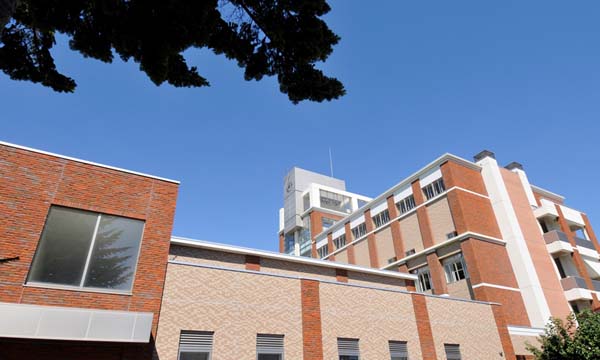
Sapporo Otani University
-

Sapporo International University
-
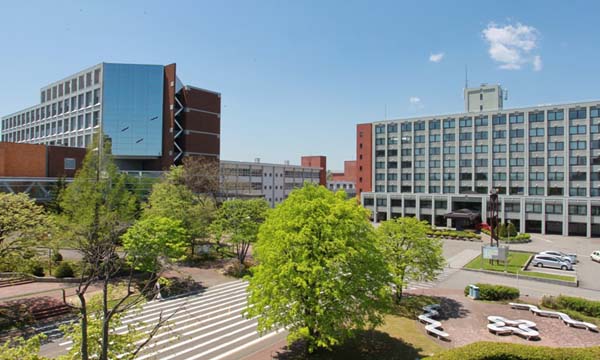
Sapporo University
-

Sapporo Otani University
The campus boasts an abundance of nature and convenient access to the city center. The university offers small-class-size education that focuses on acquiring professional knowledge, and students have an option to take courses of another department based upon their interest. A full range of facilities are available on campus, including a library, music hall, atelier, studio, learning commons, and more.
Faculty of Art, Department of Music (Piano Course, Vocal Course, Orchestral Course, Composition/Sound Creation Course, Electric Organ Course, Music Therapy Course, Integrated Music Course)
Faculty of Art, Department of Art and Design (Oil Painting Major; Japanese Painting Major; Printmaking Major; Sculpture Major; Photography, Video and Media Art Major; Graphic and Illustration Major; Information and Product Design Major; Fashion and Digital Fabrication Major)
Faculty of Sociology, Department of Community Studies (Administrative Law, Economic Management, Education and Welfare, Tourism and Media)
- Number of students / Number of international students
- 771 (as of May 1, 2022) / 2 (as of May 1, 2022)
- Faculties, schools and graduate schools that accept international students
- Faculty of Music and Fine Arts (Department of Music, Department of Fine Arts)
- Support systems aimed at international students
- N/A
- University website URL
-
http://www.sapporo-otani.ac.jp/
https://www.sapporo-otani.ac.jp/english
- Inquiries
-
Department: Admissions and Publicity Department
Tel. No.: +81-11-742-1643
E-mail: nyushi@sapporo-otani.ac.jp
Languages available: Japanese, English
-

Sapporo International University
The predecessor to Sapporo International University, Sapporo Seishu Junior College, was established in 1969 with two departments; Home Economics and Preschool Education. Sapporo International University has now developed into a university, with three faculties, six departments, and a graduate school. Sapporo International University Junior College also has two departments. Our students learn practical skills needed for a diverse range of social situations.
- Number of students / Number of international students
- 1,547 (as of Dec. 1, 2022) / 227 (as of Dec. 1, 2022)
- Faculties, schools and graduate schools that accept international students
-
Department of Humanities, Department of Sports & Human Studies, Department of Tourism
Graduate School of Tourism, Graduate School of Sports and Health Instruction
- Support systems aimed at international students
- Scholarships, reduction of/exemption from tuition fees, university-leased apartment, pre-arrival admission, airport pickup service, academic support, and student life support etc.
- University website URL
- https://www.siu.ac.jp/
- Inquiries
-
Department: International Affairs Division
Tel. No.: +81-11-881-8844
E-mail: siu-ec@ad.siu.ac.jp
Languages available: Japanese, English, Chinese, Korean, Vietnamese
-

Sapporo University
Since founded in 1967, Sapporo University has graduated as many as 60,000 students, each of whom now actively plays a great role in the business world and local communities in Hokkaido. There are nine majors for students to select, and students can choose multiple majors depending on their goals. Since the university has 39 partner universities in 11 countries, students come to study at this university from around the world. In 2021, a new scholarship for self-supported international students was established to expand support for international students. This scholarship grants the equivalent of 10% of tuition to students who meet the criteria, in addition to the tuition reduction (20%).
- Number of students / Number of international students
- 3,091 (as of May 1, 2022) / 39 (as of May 1, 2022)
- Faculties, schools and graduate schools that accept international students
-
Community Collaboration Studies
Graduate School of Regional and Cultural Studies
- Support systems aimed at international students
- Scholarships, reduction of/exemption from tuition fees
- University website URL
-
https://www.sapporo-u.ac.jp/
https://intl.sapporo-u.ac.jp/ja/
- Inquiries
-
Department: Sapporo University International Communication Center
Tel. No.: +81-11-852-9138
E-mail: suicc@ofc.sapporo-u.ac.jp
Languages available: Japanese, English, Chinese, Korean
-
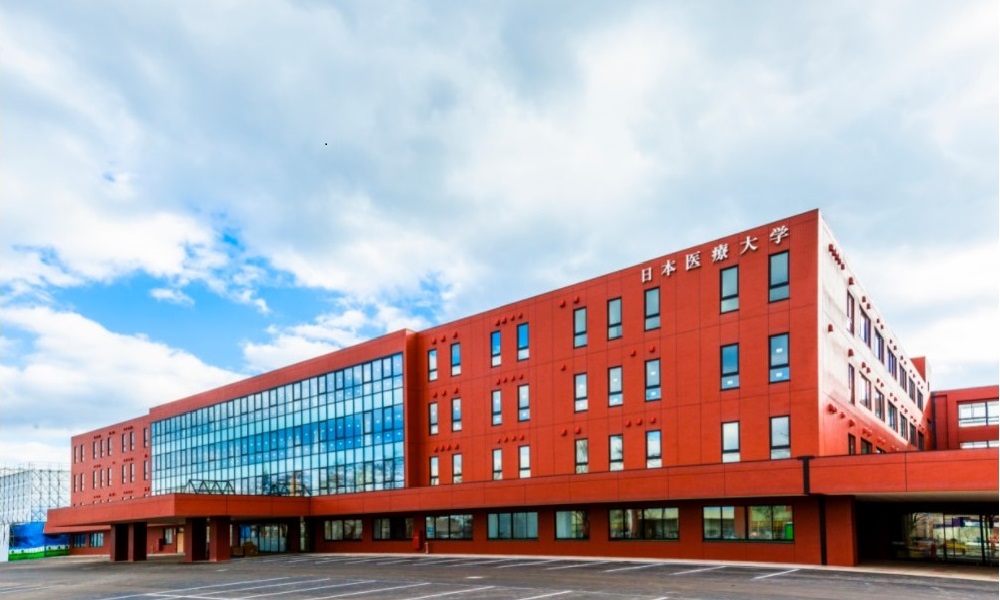
Japan Healthcare University
-
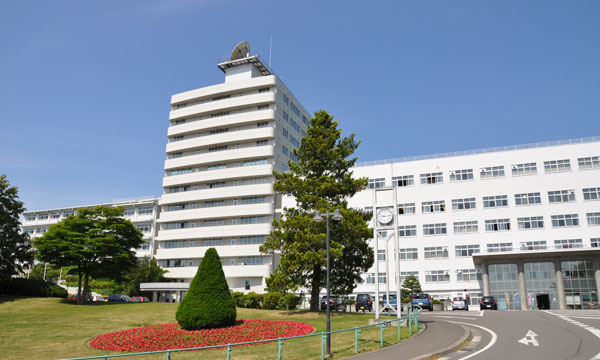
Tokai University
-

Fuji Women’s University
-

Japan Healthcare University
Japan Healthcare University is operated by Tsushima Health Care & Welfare Group. The corporate group has offered long-term care and welfare services nationwide, centering on Sapporo to Sendai and Kanto region, and elsewhere. The Group has been engaged in long-term care since establishing its first facility in May 1983, and it has now grown to a group comprised of 12 corporations as well as Japan Healthcare University. Namely, NOTE Social Welfare Corporation serves as the group’s main business, operating 109 welfare and medical service offices across Japan. The University also offers seven departments in two faculties—Faculty of Comprehensive Social Work and Faculty of Health Sciences. Japan Healthcare University is striving to support students in their campus and daily lives, such as by providing a student dormitory and introducing part-time jobs at the 12 group corporations. The University looks forward to welcoming ambitious students in this well-established environment, which enables students to prepare for their future career.
- Number of students / Number of international students
- 1,508 (as of Dec. 20, 2022) / 0 (as of Dec. 20, 2022)
- Faculties, schools and graduate schools that accept international students
-
Faculty of Health Sciences, Department of Nursing
Faculty of Health Sciences, Department of Radiological Technology
Faculty of Health Sciences, Department of Rehabilitation
Faculty of Health Sciences, Department of Clinical Laboratory Sciences
Faculty of Health Sciences, Department of Clinical Engineering
Faculty of Comprehensive Social Work, Department of Carework and Management
Faculty of Comprehensive Social Work, Department of Social Work
- Support systems aimed at international students
- Student dormitories, introducing part-time jobs at the group corporations
- University website URL
- https://www.jhu.ac.jp/
- Inquiries
-
Department: International Student Center
Tel. No.: +81-11-351-6100
E-mail: jpn_info@jhu.ac.jp
Languages available: Japanese, Chinese
-

Tokai University
This university is a comprehensive nationwide university with campuses throughout Japan, from Hokkaido to Kyushu, aiming to advance the development of human resources through integrated education in humanities and sciences. With its core of education, research, social collaboration, international cooperation and, in particular, as a pioneer of international exchange activities that advocate international peace, the university is proceeding with globalization through establishing the Intensive Japanese Language Program that focus on the education of students from overseas.
- Number of students / Number of international students
- 27,608 (as of May 1, 2022) / 1,431 (as of May. 1 2022)
- Faculties, schools and graduate schools that accept international students
-
Undergraduate School of International Cultural Relations, Biological Sciences, Letters, Cultural and Social Studies, Humanities and Culture, Physical Education, Health Studies, Law, Political Science and Economics, Business Administration, Global Studies, Tourism, Information and Telecommunication Engineering , Science, Information Science and Technology, Architecture and Urban Planning, Engineering, Medicine, Marine Science and Technology, Humanities, Humanities and Science, Agriculture
(At the Sapporo Campus, only International Cultural Relations and Biological Science available for enrollment.)
Graduate School of Biology, Science and Technology, Bioscience, Letters, Political Science, Economics, Law, Human Environmental Studies, Arts, Physical Education, Science, Engineering, Information and Telecommunication Engineering, Oceanography, Medicine, Health Sciences, Agriculture (At the Sapporo Campus, only Biology available for enrollment.)
- Support systems aimed at international students
- Scholarships, courses designed for international students, career services
- University website URL
- https://www.u-tokai.ac.jp/
- Inquiries
-
Department: OASIS (Office of Admission Services for International Students)
Tel. No.: +81-463-58-1211
E-mail: oasis@tsc.u-tokai.ac.jp
Languages available: Japanese, English, Chinese, Arabic
-

Fuji Women’s University
Sapporo Fuji Girls’ High School, the predecessor of Fuji Women’s University, was established in the belief that “The future of Hokkaido is in the education of girls”. Following this belief, Fuji Women’s University was founded in 1961. The university comprises two faculties – the Faculty of Humanities on the Kita 16-jo Campus (Sapporo), and the Faculty of Human Life Sciences on the Hanakawa Campus (Ishikari) – and 6 departments. The university is true to its mission to foster women of intellect and humanity to live in love and service a wider society, through a holistic higher education founded on the compassion of the Christian world view.
- Number of students / Number of international students
- 1,916 (as of May 1, 2022) / 1 (as of May 1, 2022)
- Faculties, schools and graduate schools that accept international students
-
Faculty of Humanities, Faculty of Human Life Sciences
Graduate School of Human Life Sciences
- Support systems aimed at international students
- Reduction of/exemption from tuition fees, Tutor system (only available for international students from partner universities)
- University website URL
- http://www.fujijoshi.ac.jp/english/
- Inquiries
-
Department: Admissions Office
Tel. No.: +81-11-736-5959
E-mail: https://www.fujijoshi.ac.jp/contact/
Languages available: Japanese
-
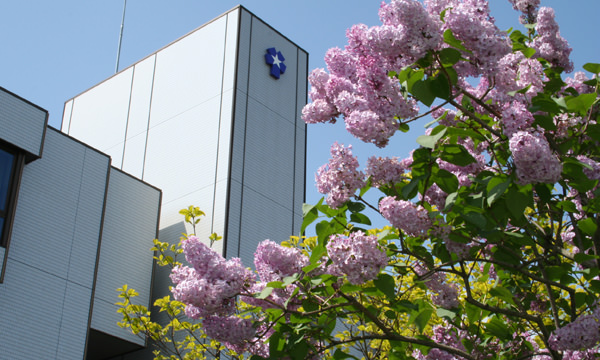
Hokusei Gakuen University
-
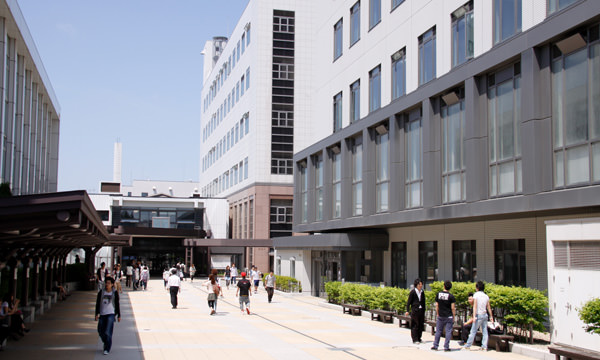
Hokkai - Gakuen University
-
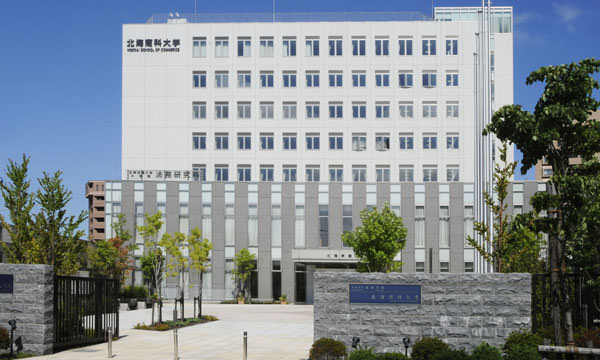
Hokkai School of Commerce
-

Hokusei Gakuen University
This university has been involved in international-exchange education for 50 years. It currently has exchange agreements with 18 universities in the United States, Canada, UK, Indonesia, Korea, Switzerland, Spain, China and Taiwan, with some 50 international exchange students studying at the university each year. As well as the standard entrance examination for 4-year education programs, a separate entrance examination has also been established for self-supported international students from overseas. However, as there are no special educational programs established for such international students, they attend the standard lectures along with the Japanese students.
- Number of students / Number of international students
- 3,683 (as of May 1, 2022) / 5 (as of May 1, 2022)
- Faculties, schools and graduate schools that accept international students
-
School of Humanities (Department of English, Department of Psychology and Applied Communication)
School of Economics (Department of Economics, Department of Management Information, Department of Law and Economics)
School of Social Welfare (Department of Social Welfare, Department of Psychology)
Graduate School of Literature (Master's Program in Language, Culture, and Communication)Graduate School of Economics (Master's Program in Economics)
Graduate School of Social Welfare (Master's Program in Social Walfare, Master’s Program in Clinical Psychology)
- Support systems aimed at international students
- Scholarships, reduction of/exemption from tuition fees
- University website URL
- https://www.hokusei.ac.jp/en/
- Inquiries
-
Department: Admissions Office (for inquires on international students’ admissions), International Education and Language Office (for inquires on overseas exchanges between partner universities)
Tel. No.: Admissions Office: +81-11-891-2731 International Education and Language Office:+81-11-891-2731
E-mail: Admissions Office: nyushi@hokusei.ac.jp International Education and Language Office:intlcenter@hokusei.ac.jp
Languages available: Japanese, English
-

Hokkai - Gakuen University
Hokkai Gakuen University was founded in 1952 as Hokkaido’s first 4-year private university and has currently developed into a comprehensive coeducational university comprising 5 undergraduate schools and 5 graduate schools. The university continues to turn out human resources in numerous fields and enterprises, including approximately 94,000 graduates in public offices in Hokkaido and beyond. Japanese language lessons have been established for international undergraduates, with support provided to improve linguistic ability. Club activities also make for a dynamic student life, with many sports-oriented clubs taking part in national events, and liberal arts clubs performing around the different regions.
- Number of students / Number of international students
- 7,966(as of May 1, 2022) / 4 (as of May 1, 2022)
- Faculties, schools and graduate schools that accept international students
-
Faculty of Economics, Faculty of Business Administration, Faculty of Law, Faculty of Humanities, Faculty of Engineering
Graduate school of Economics, Graduate School of Business Administration, Graduate School of Law, Graduate School of Letters, Graduate School of Engineering
- Support systems aimed at international students
- Scholarships, reduction of/exemption from tuition fees
- University website URL
- https://www.hgu.jp
- Inquiries
-
Department: Admission Office, Admission Section
Tel. No.: +81-11-841-1161
E-mail: info-adm@hgu.jp
Languages available: Japanese
-

Hokkai School of Commerce
— Business and language education to gain competence in the world of global business and international tourism —
This university was opened in 2006 as Hokkai Gakuen University’s sister school and “one more Gakuen” at which to study commerce major with the educational goal of “studying Asia in the Asian era”. The university aims to take advantage of its small-class-size education and the development of advanced communication skills. Efforts are also being concentrated on language study. Students can develop international perspectives and business sense through studying abroad at a partner university and a variety of other cultural exchange opportunities. With its own academic curriculums and educational system, this university has nurtured human resources capable of demonstrating practical skills in the fields of global business and international tourism. Since the Graduate School of Commerce was founded in 2011, the university has also strived to foster human resources through a more specialized education and research system.- Number of students / Number of international students
- 832 (as of Dec. 1, 2022) / 1 (as of Dec. 1, 2022)
- Faculties, schools and graduate schools that accept international students
-
Faculty of Commerce; Department of Commerce, Tourism Industry Department (Limited to students from partner universities)
Graduate School of Commerce; Business Major, Master and Doctoral Programs (Limited to students from partner universities)
- Support systems aimed at international students
- N/A
- University website URL
- https://www.hokkai.ac.jp/
- Inquiries
-
Department: Admissions & Publicity Center
Tel. No.: +81-11-841-1161
E-mail: -
Languages available: Japanese
-
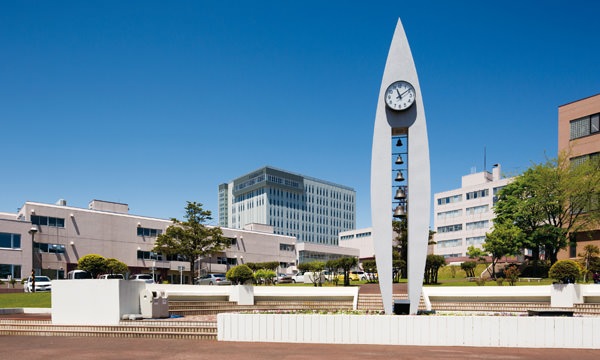
Health Sciences University of Hokkaido
-
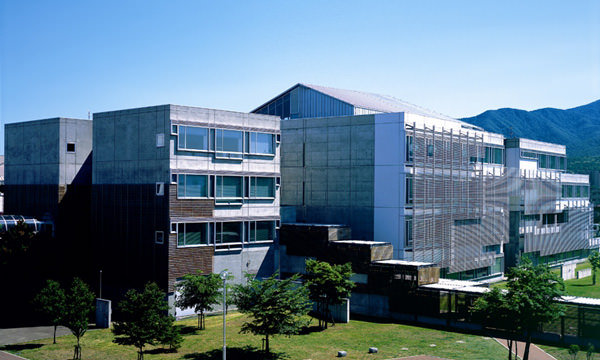
Hokkaido University of Science
-

Health Sciences University of Hokkaido
Health Sciences University of Hokkaido Graduate Schools offer systematic education programs by means of research courses and certified physician/medical specialist training courses. Overseas students and other members of the international society are actively welcomed, creating an environment of mutual stimulation among students of various academic backgrounds. Through its management of the process towards being awarded a degree, the university endeavors to nurture extremely talented research-minded dentists and researchers to lead the development of dentistry in the future.
- Number of students / Number of international students
- 3,446 (as of November 1, 2022) / 78 (as of November 1, 2022)
- Faculties, schools and graduate schools that accept international students
- Graduate School of Dentistry
- Support systems aimed at international students
- Reduction of/exemption from tuition fees
- University website URL
- http://www.hoku-iryo-u.ac.jp/eng/
- Inquiries
-
Department: Admissions & Publicity Department
Tel. No.: +81-133-22-2113
E-mail: nyushi@hoku-iryo-u.ac.jp
Languages available: Japanese, English
-

Hokkaido University of Science
Hokkaido University of Science has four faculties and 13 departments. This comprehensive university has focuses on hands-on courses. The predecessor to the school, Hokkaido Institute of Technology, was renamed to Hokkaido University of Science when the Faculty of Health Sciences was added in 2014. In April 2018, the university and Hokkaido Pharmaceutical University merged to form the renewed Hokkaido University of Science. Under its slogan of "+Professional” and in response to a rapidly changing society, this university continues to teach humanity, communication skills, problem-solving skills, and management skills, which are all required as the fundamental qualities in any working environment, and to foster "+Professional" human resources with a high level of expertise in each field.
- Number of students / Number of international students
- 4,791 (as of May 1, 2022) / 5 (as of May 1, 2022)
- Faculties, schools and graduate schools that accept international students
-
Faculty of Engineering, Faculty of Pharmaceutical Sciences, Faculty of Health Sciences, Faculty of Future Design
Graduate School of Engineering, Graduate School of Pharmaceutical Sciences, Graduate School of Health Sciences (all designed for Master’s and Doctor’s degrees)
- Support systems aimed at international students
- Reduction or exemption of tuition fees
- University website URL
- https://www.hus.ac.jp/eng/
- Inquiries
-
Department: Admissions Office
Tel. No.: +81-11-688-2381
E-mail: nyushi@hus.ac.jp
Languages available: Japanese
-
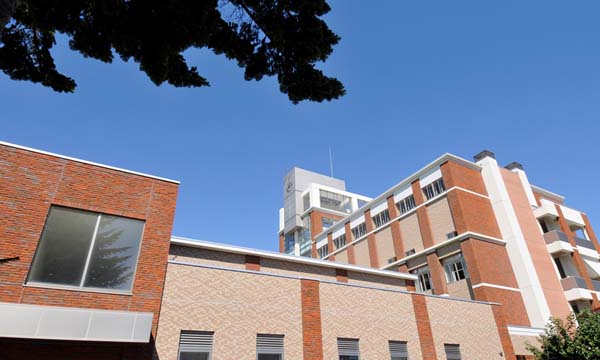
Sapporo Otani Junior College
-

Sapporo International Junior College
-
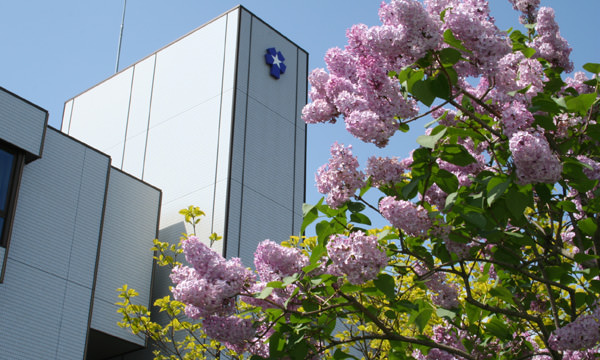
Hokusei Gakuen University Junior College
-

Sapporo Otani Junior College
Students of the Department of Childcare acquire the general skills required of childcare personnel: skills obtained by learning from textbooks and teachers, abundant practical training work and hands-on lessons, as well as senses that are refined through musical and artistic expression. These skills are further improved through contact with children at the college’s affiliated kindergarten and on-campus Childcare Support Center. The college’s aim is to nurture kindergarten teachers and child minders with a rich sense of humanity as childcare personnel, through practical education and hands-on training at affiliated facilities.
- Number of students / Number of international students
- 160 (as of May 1, 2022) / 0 (as of May 1, 2022)
- Faculties, schools and graduate schools that accept international students
- Department of Childcare
- Support systems aimed at international students
- N/A
- University website URL
-
http://www.sapporo-otani.ac.jp/
https://www.sapporo-otani.ac.jp/english
- Inquiries
-
Department: Admissions and Publicity Department
Tel. No.: +81-11-742-1643
E-mail: nyushi@sapporo-otani.ac.jp
Languages available: Japanese, English
-

Sapporo International Junior College
The predecessor to Sapporo International University, Sapporo Seishu Junior College, was established in 1969 with two departments; Home Economics and Preschool Education. Sapporo International University has now developed into a university, with three faculties, six departments, and a graduate school. Sapporo International University Junior College also has two departments. Our students learn practical skills needed for a diverse range of social situations.
- Number of students / Number of international students
- 225 (as of Dec. 1, 2022) / 1 (as of Dec. 1, 2022)
- Faculties, schools and graduate schools that accept international students
- Department of Human Development and Career Studies, Department of Early Childhood Education and Childcare
- Support systems aimed at international students
- Scholarships, reduction of/exemption from tuition fees, university-leased apartment, pre-arrival admission, airport pickup service, academic support, and student life support etc.
- University website URL
- https://www.siu.ac.jp/
- Inquiries
-
Department: International Affairs Division
Tel. No.: +81-11-881-8844
E-mail: siu-ec@ad.siu.ac.jp
Languages available: Japanese, English, Chinese, Vietnamese
-

Hokusei Gakuen University Junior College
The college’s Department of English offers a short-term overseas study program that currently has agreements with 7 universities in 5 countries: United States, Canada, UK, New Zealand, and Australia. (The college only dispatches students and cannot accept exchange students from overseas). As well as the standard entrance examination for 2-year study programs, a separate entrance examination has also been established for international students from overseas. However, as there are no special educational programs for such international students, they attend the standard lectures along with the Japanese students.
- Number of students / Number of international students
- 339 (as of May 1, 2022) / 0 (as of May 1, 2022)
- Faculties, schools and graduate schools that accept international students
- Department of English, Department of Life and Creative Sciences
- Support systems aimed at international students
- Scholarships, reduction of/exemption from tuition fees
- University website URL
- https://www.hokusei.ac.jp/en/
- Inquiries
-
Department: Admissions Department
Tel. No.: +81-11-891-2731
E-mail: nyushi@hokusei.ac.jp
Languages available: Japanese, English(email only)
-
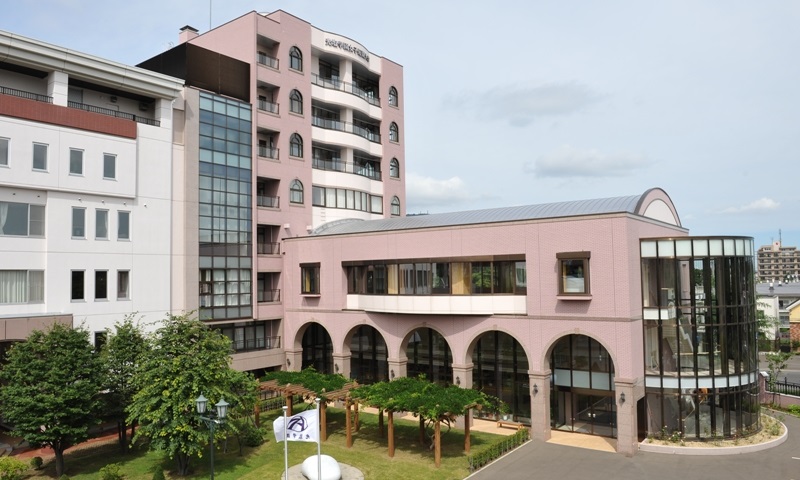
Koen Gakuen Women’s Junior College
-

Koen Gakuen Women’s Junior College
Koen Gakuen Women’s Junior College has two departments: Department of Food Science and Dietetics and Department of Early Childhood Education. Through practical education at this college, students can obtain national qualifications specializing in each field. These two departments focus not only on acquiring licenses and qualifications, but also on nurturing human resources with practical skills required in today’s society.
- Number of students / Number of international students
- 267 (as of Jan. 5, 2023) / 0 (as of Jan.5, 2023)
- Faculties, schools and graduate schools that accept international students
- Department of Food Science and Dietetics, Department of Early Childhood Education
- Support systems aimed at international students
- N/A
- University website URL
- http://tandai.koen.ac.jp/
- Inquiries
-
Department: Admissions and Publicity Department
Tel. No.: +81-11-581-0121
E-mail: nyushi@koen.ac.jp
Languages available: Japanese

